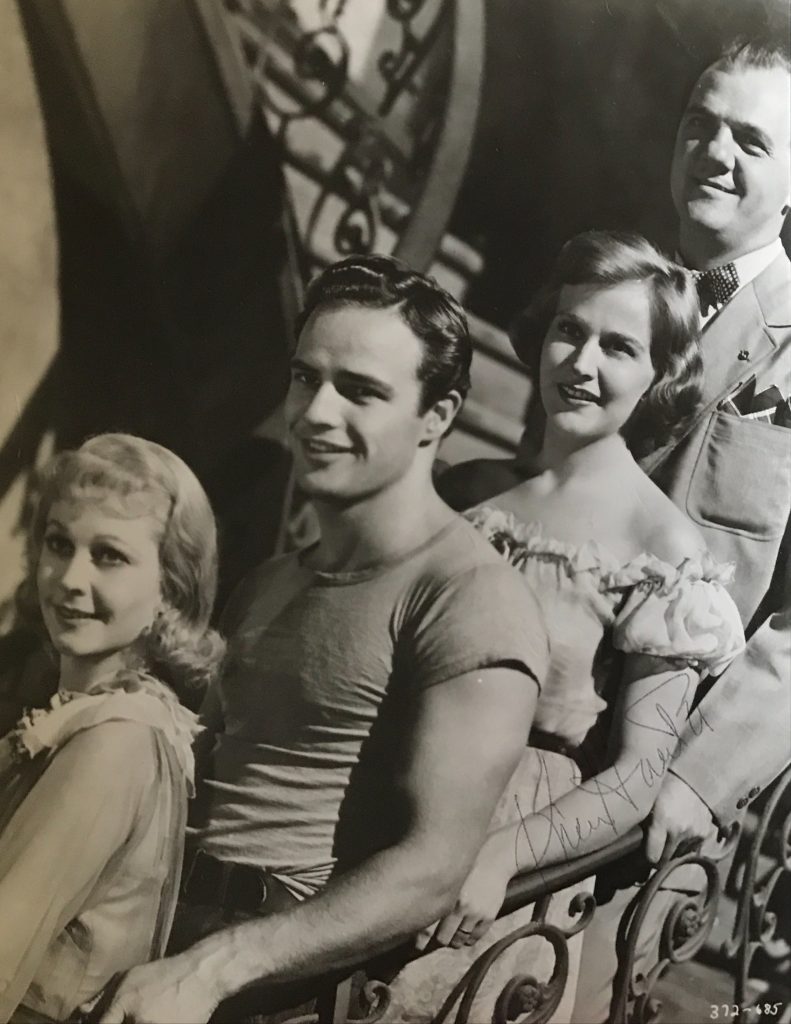
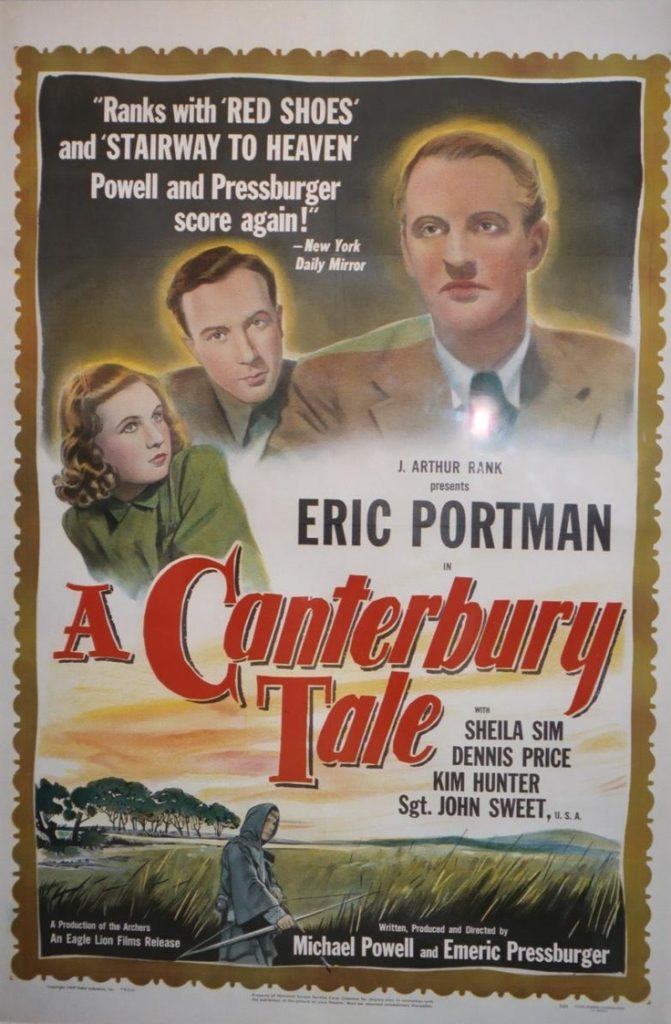
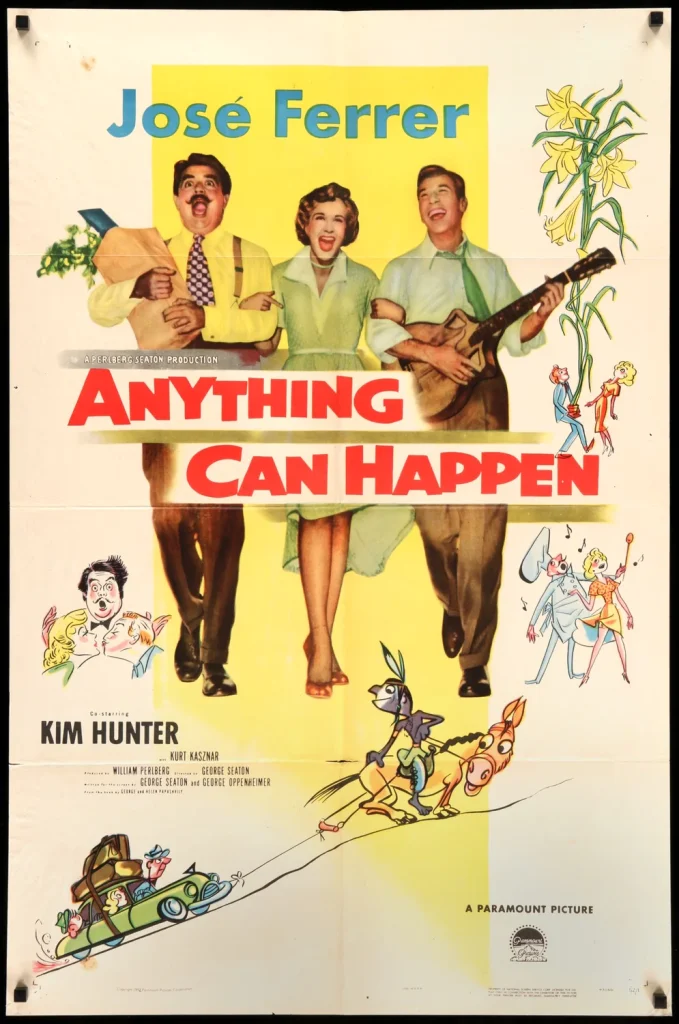
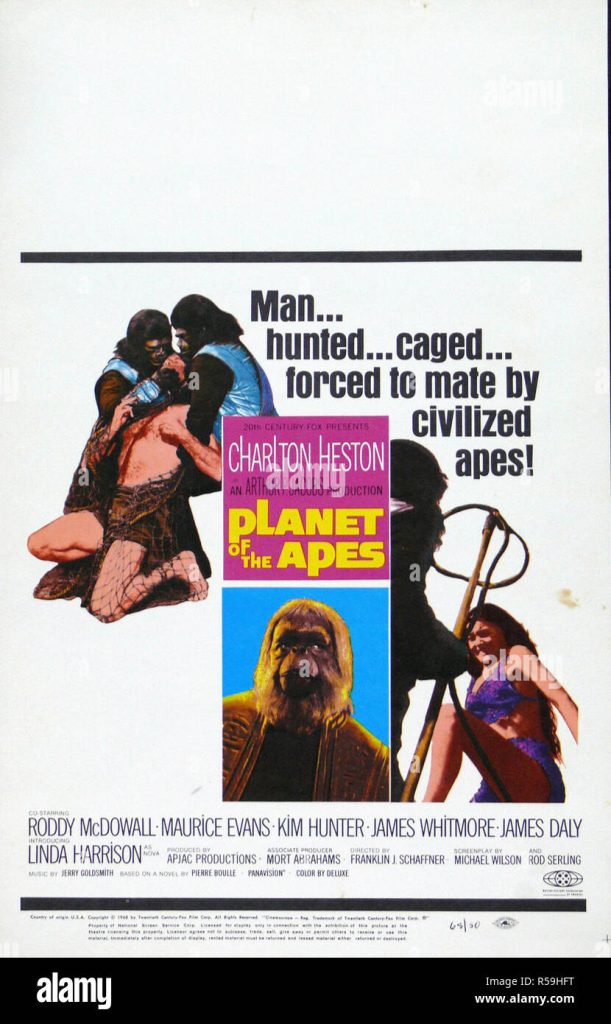
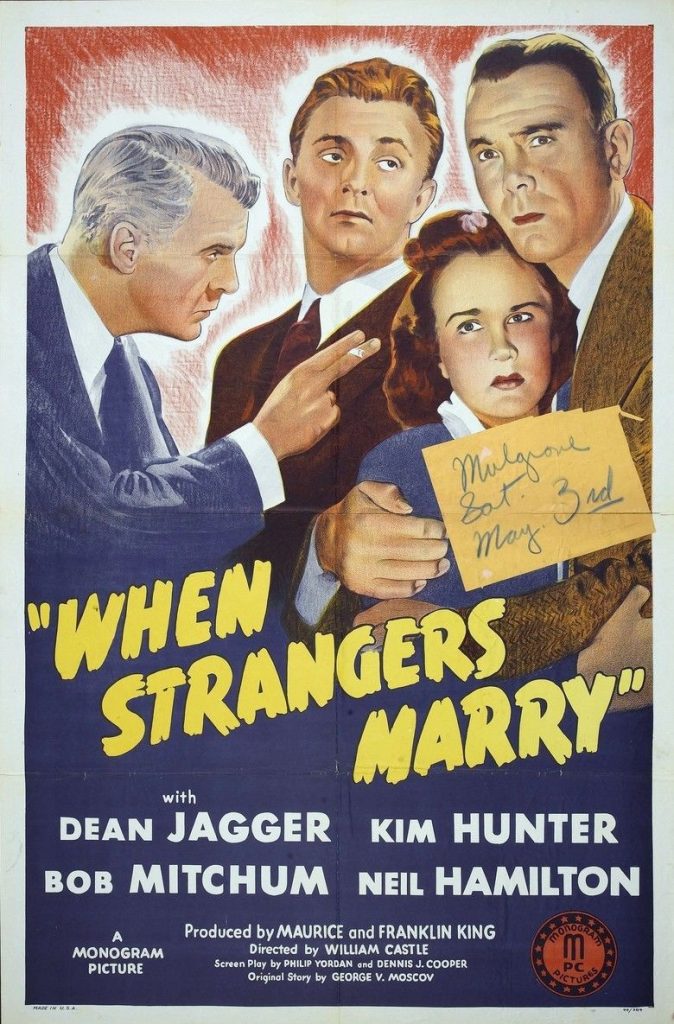
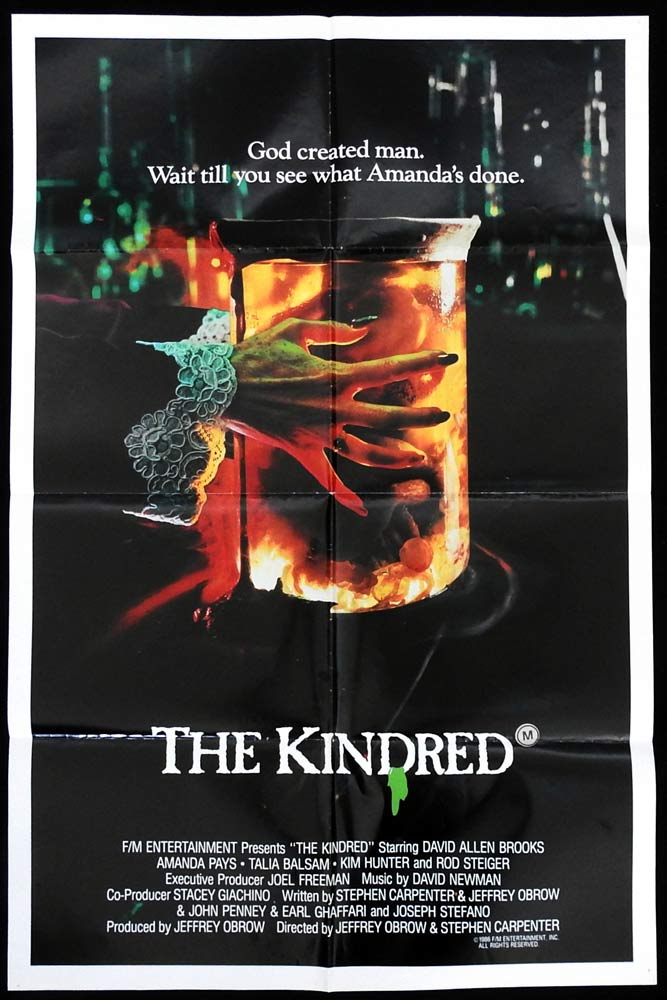
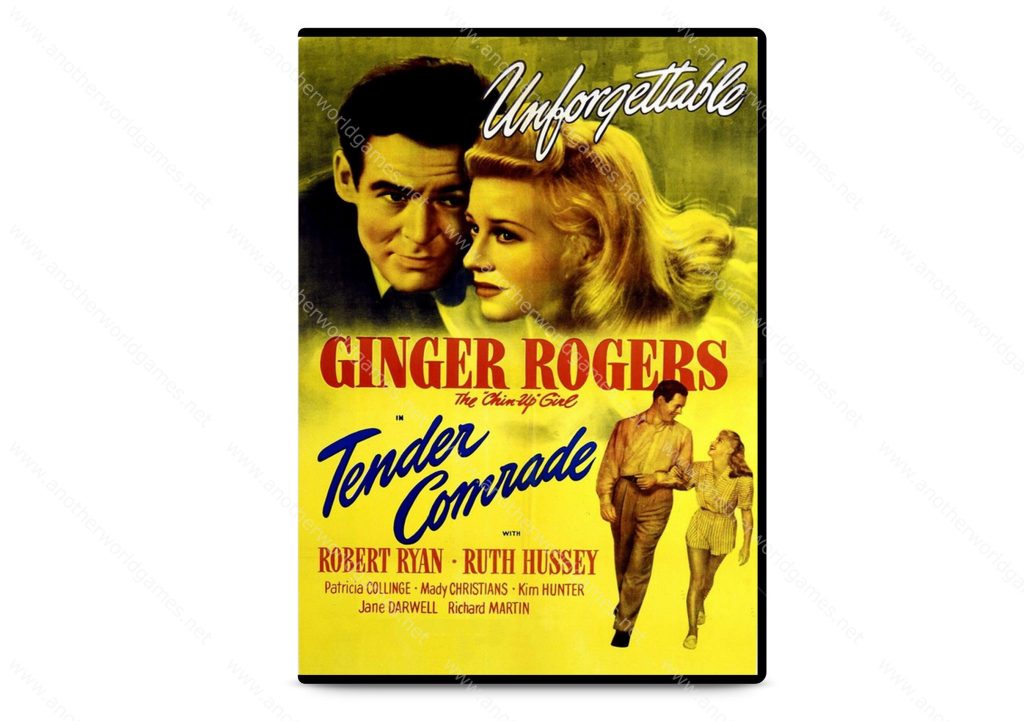
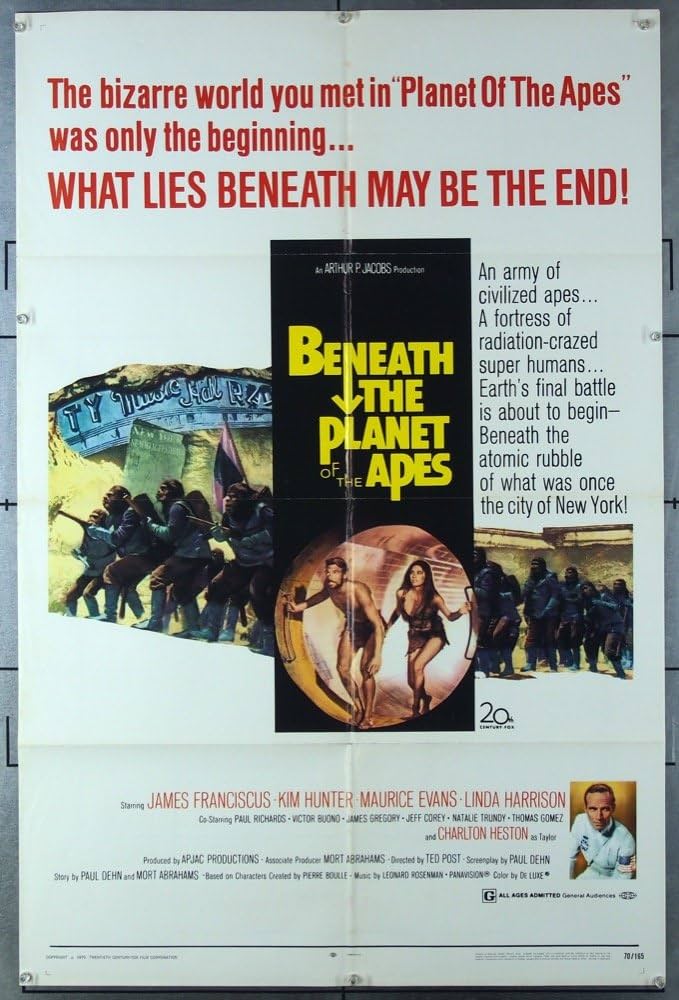
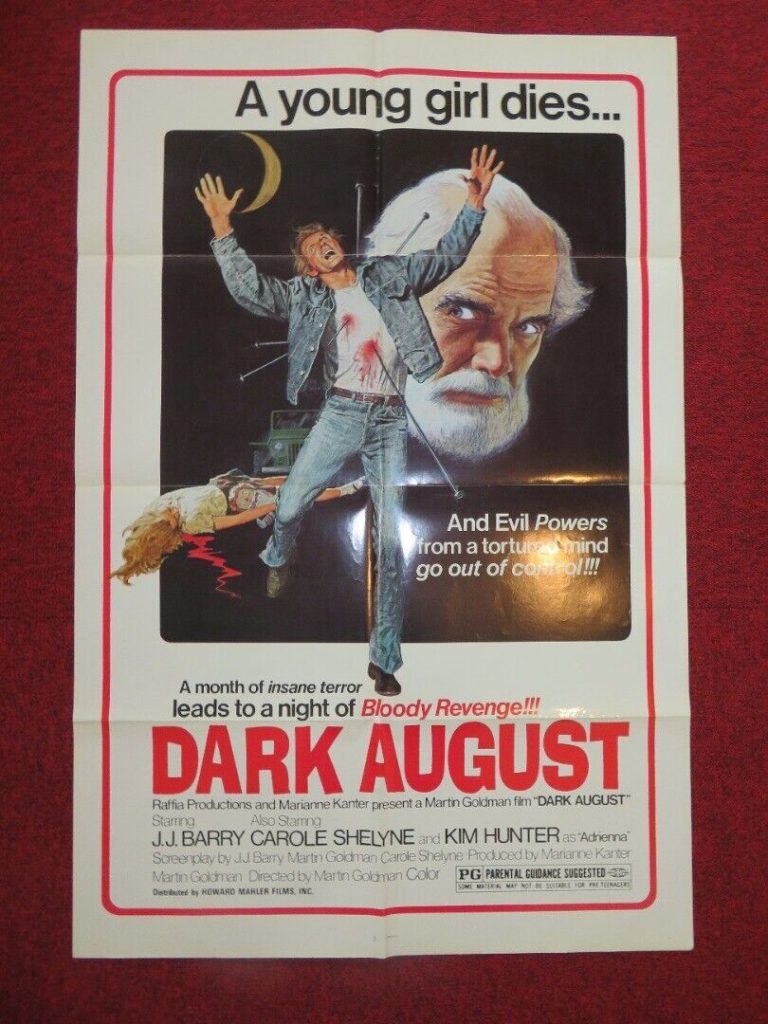
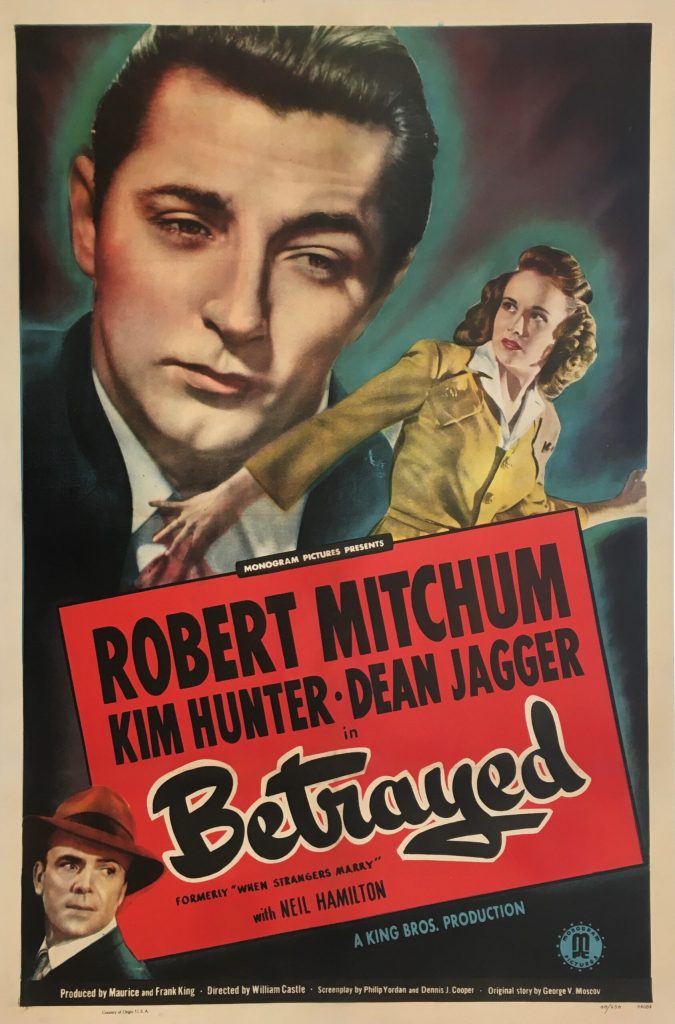
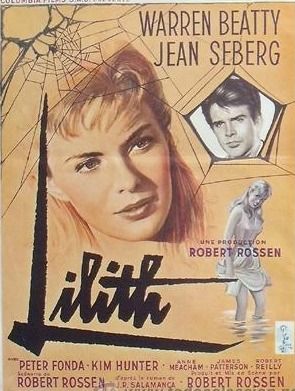
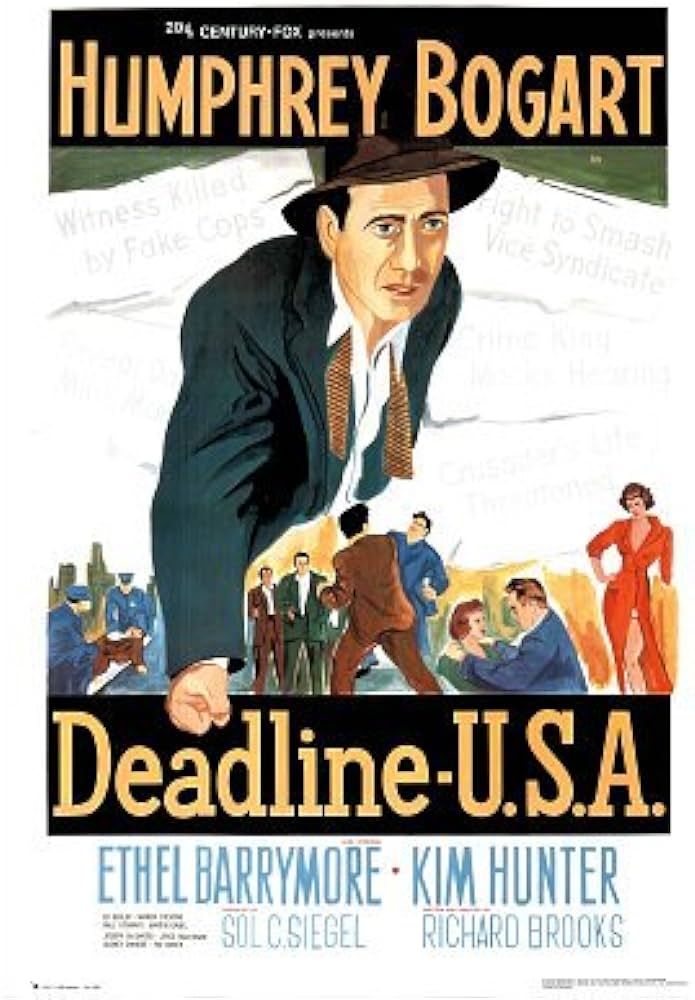
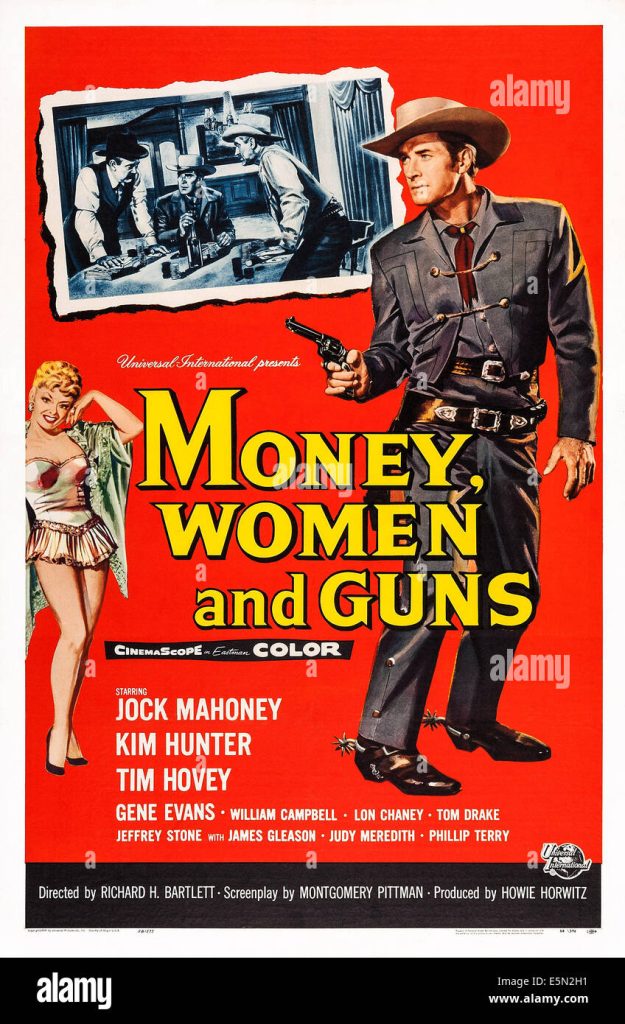
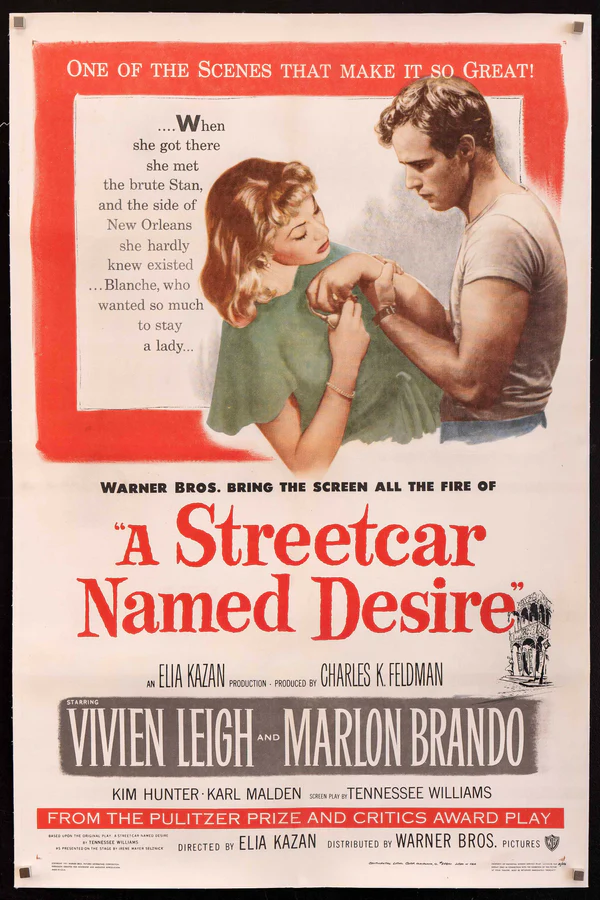
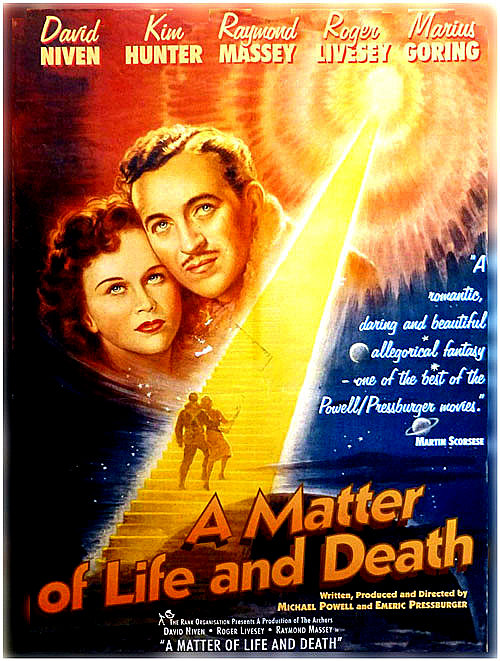
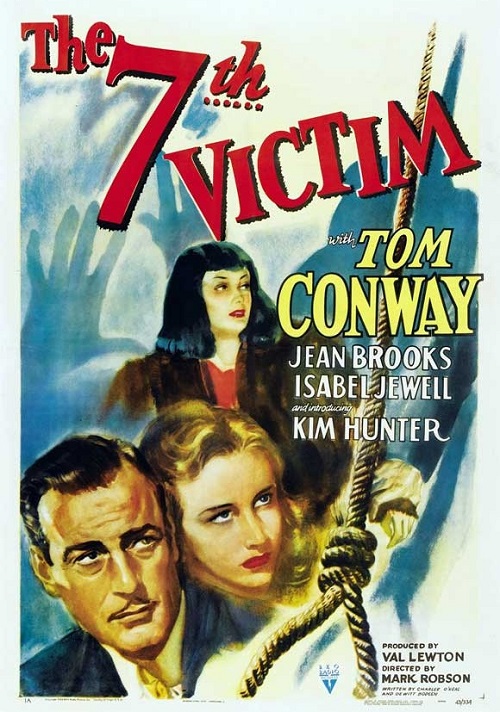
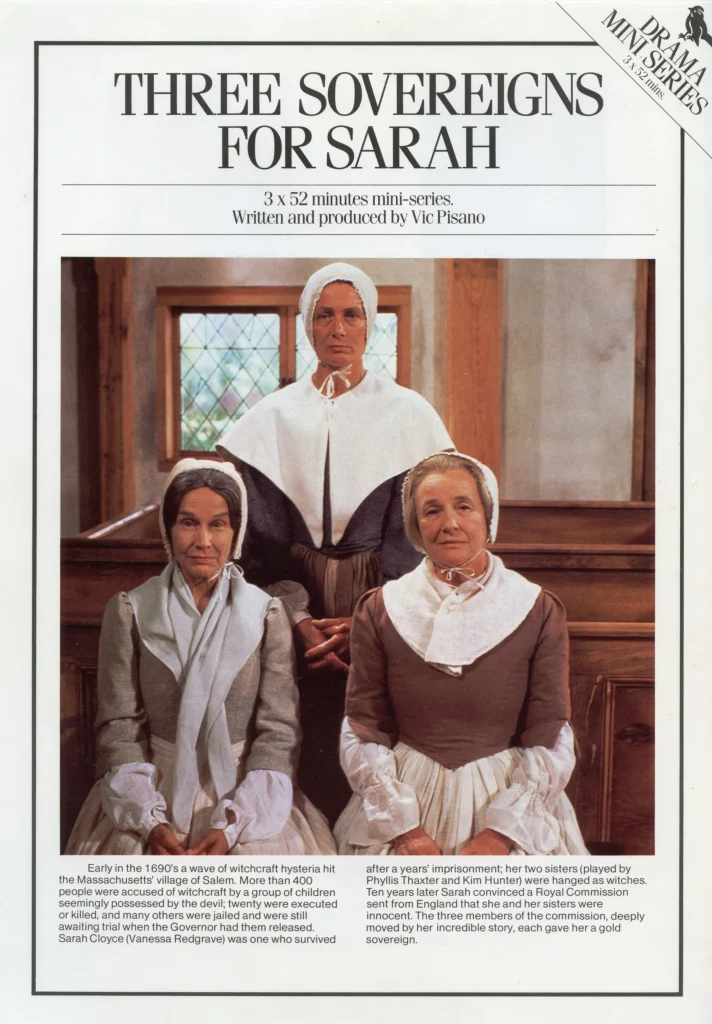
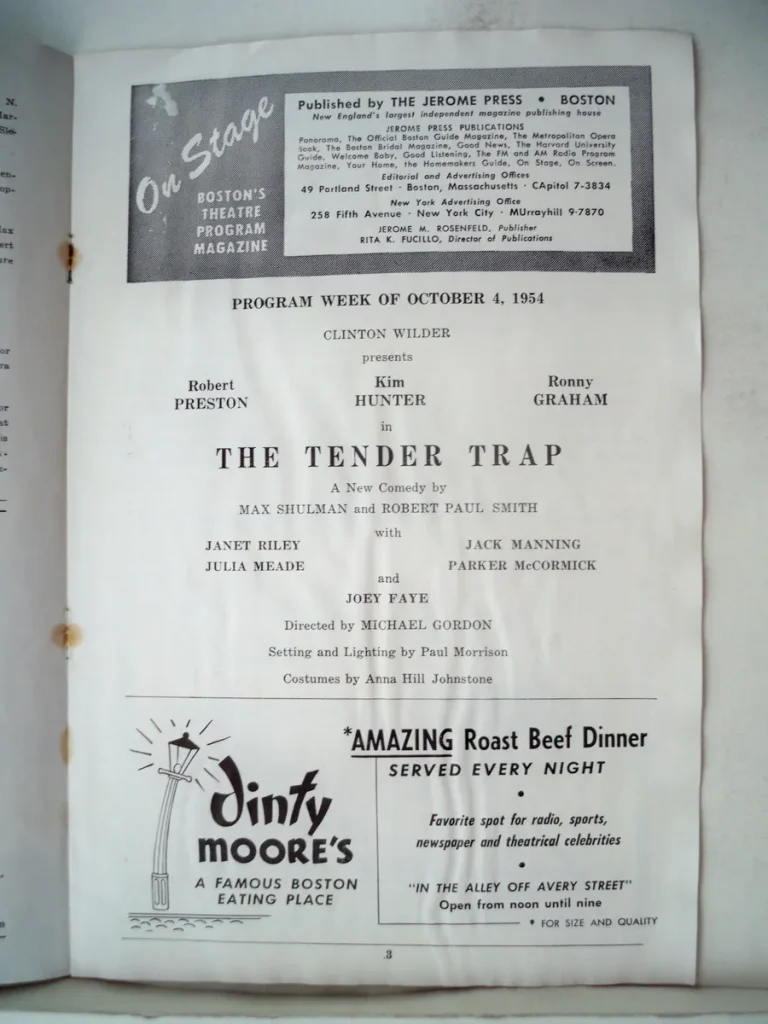
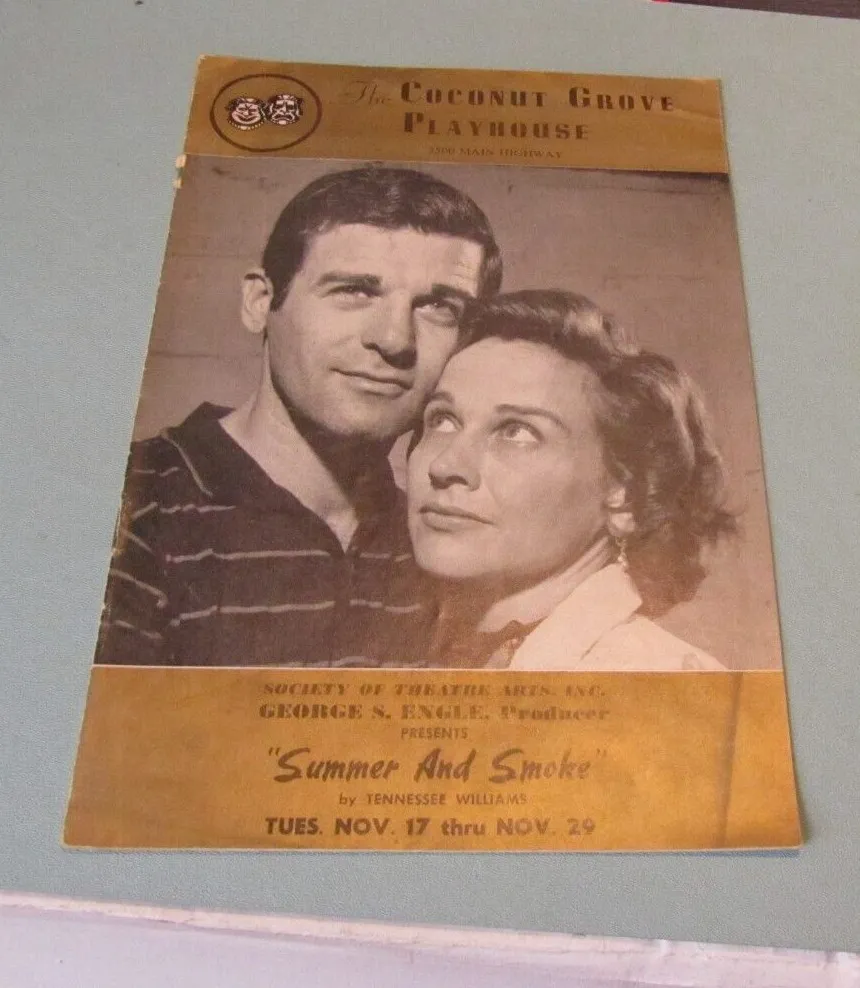
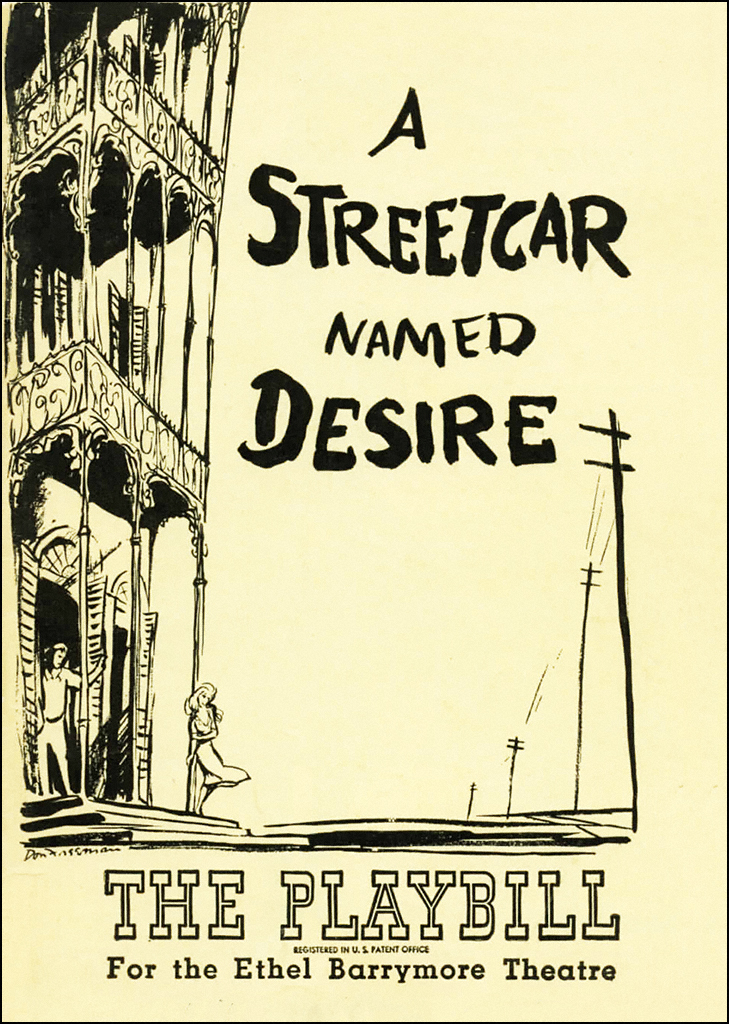
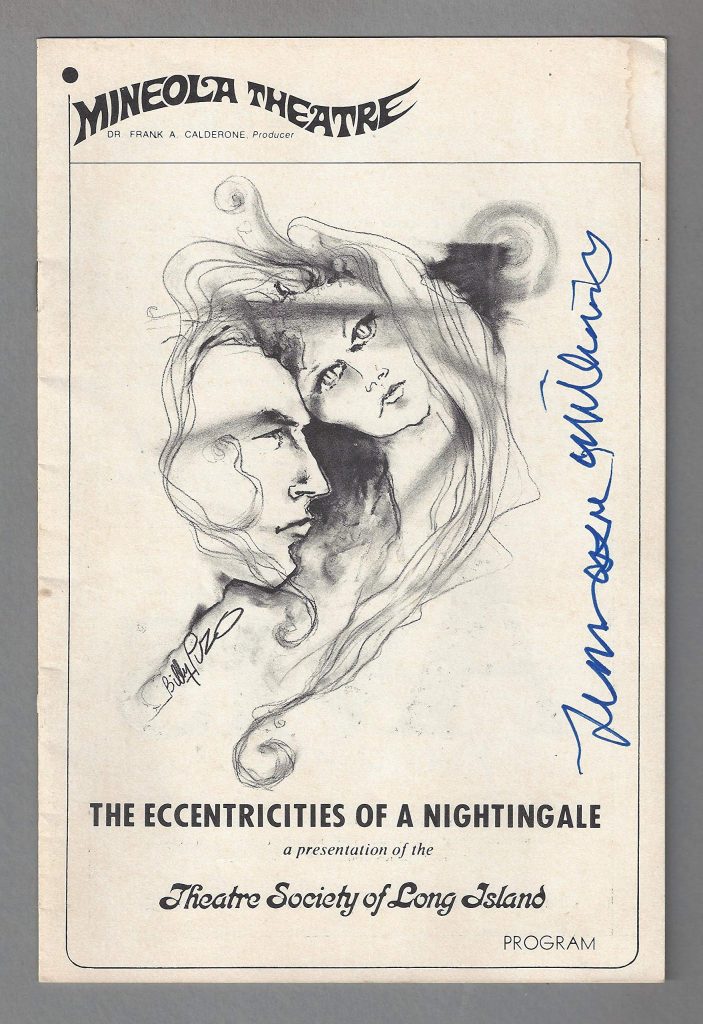
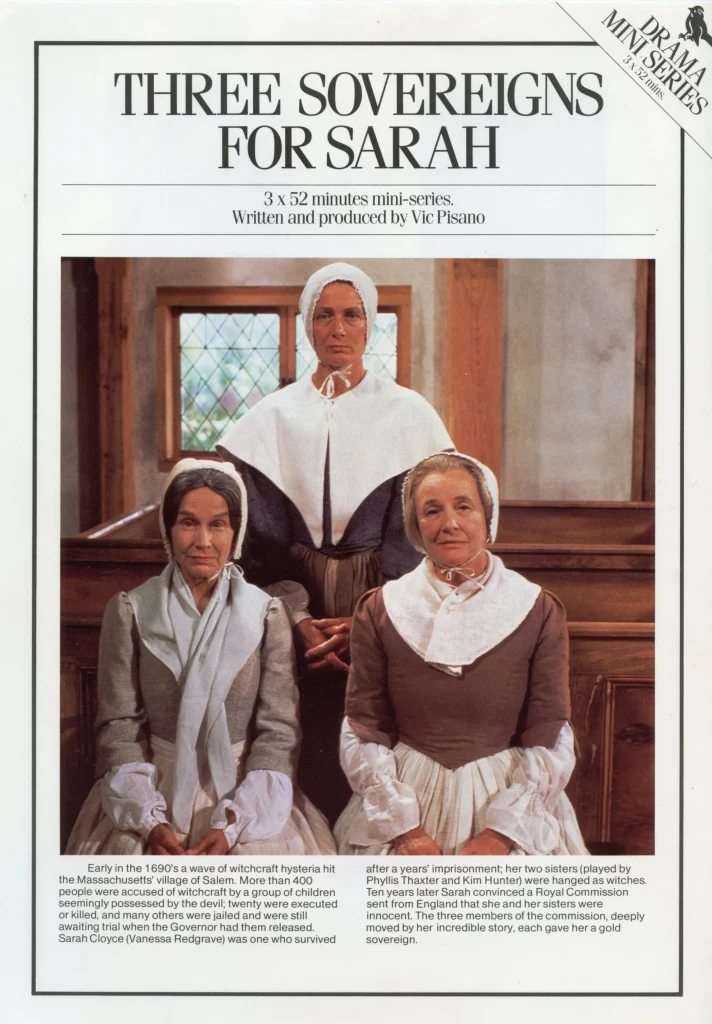
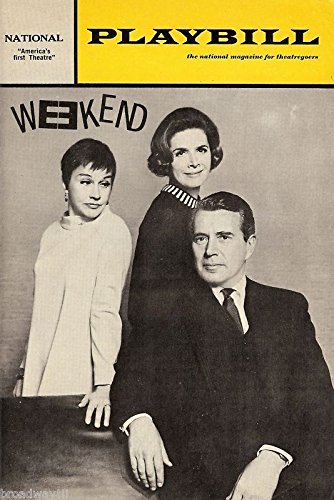
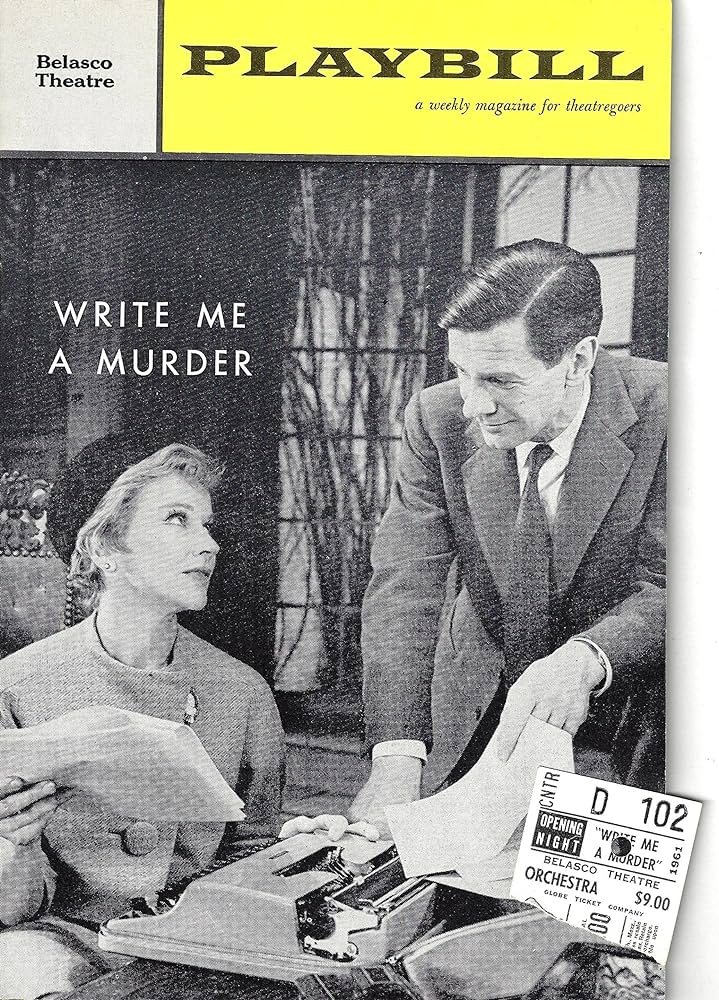
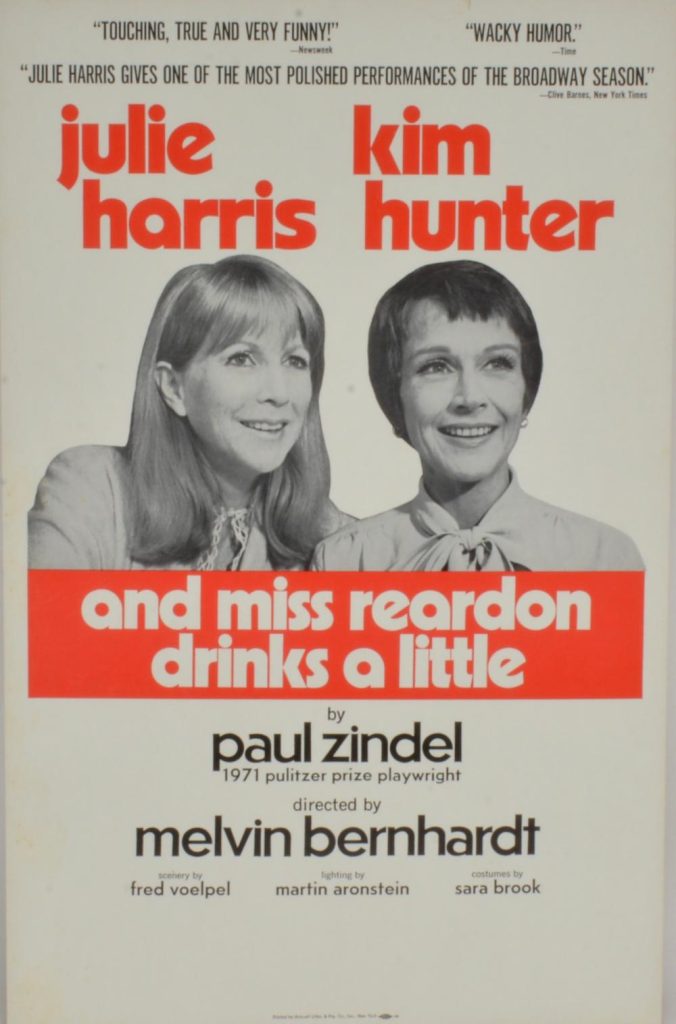
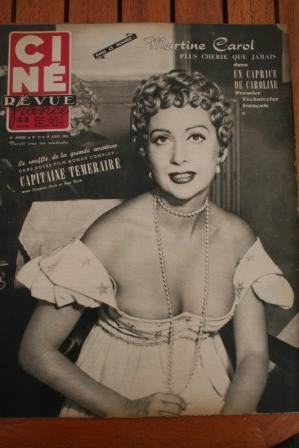
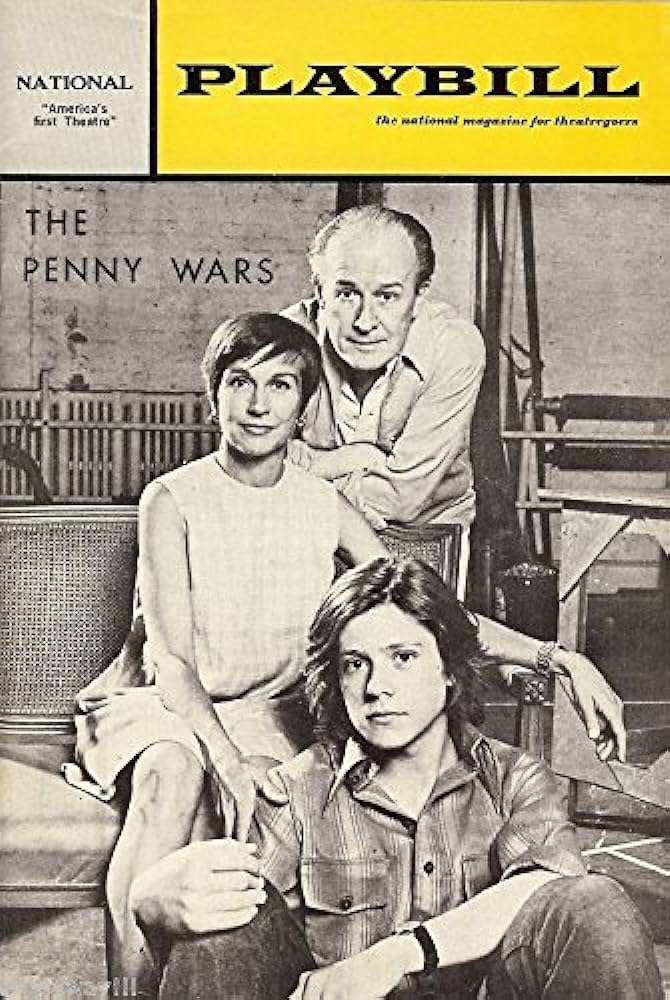
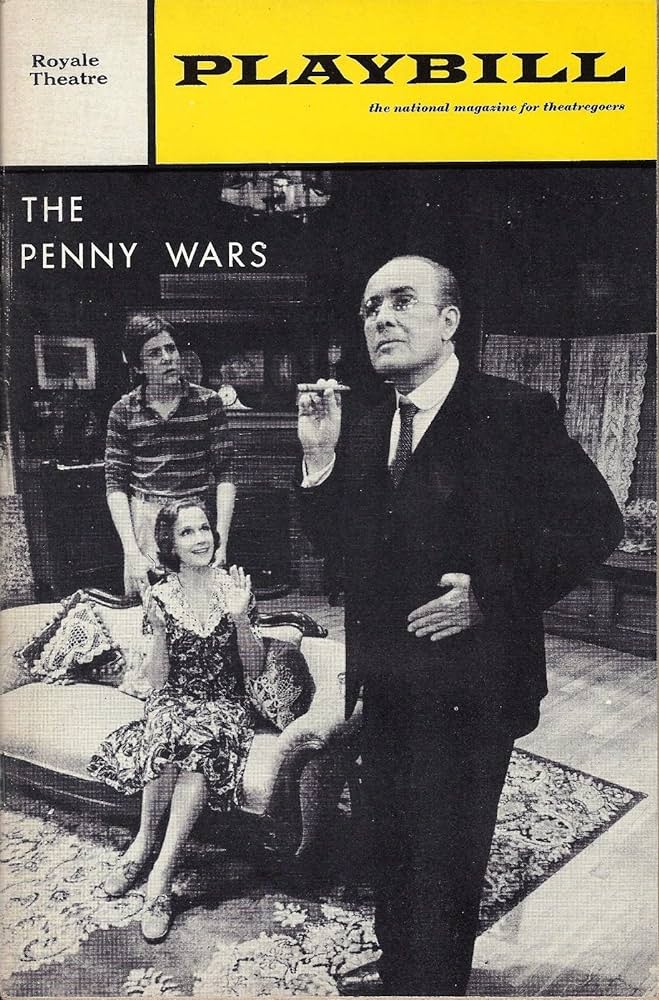
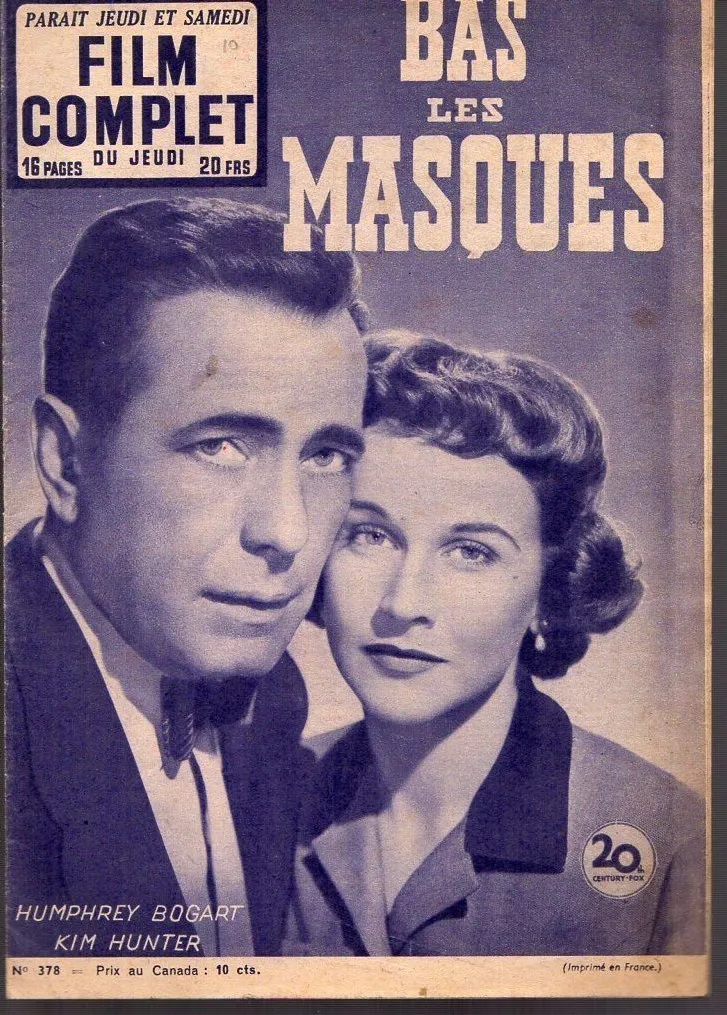
Kim Hunter was born in 1922 in Detroit. In 1943 she starred in the film noir “The Seventh Victim”. In 1944 she was in England to make “A Canterbury Tale” and also made “A Matter of Life and Death” there in 1946. She won an Oscar for her performance as Stella opposite Marlon Brando and Vivien Leigh in “A Streetcar Named Desire”. In 1967 she starred in “Planet of the Apes”. She died in 2002 aged 79.
Her obituary by Brian Baxter in “The Guardian”:
For a distinguished and versatile stage actor whose Oscar-winning screen career effectively began with the visionary A Matter Of Life And Death (1945), it might have proved galling to be popularly associated with Planet Of The Apes. But Kim Hunter, who has died aged 79, was far too intelligent to let the success of her masked performance as the sympathetic simian Dr Zira distract from the achievements of a 60-year career, which included long periods out of work because of her association with blacklisted film directors in America’s McCarthyite times.
Hunter made her Broadway debut in 1947, as the put-upon wife Stella in Tennessee Will- iams’s A Streetcar Named Desire. When Elia Kazan transferred his production into a mesmerising movie in 1951, she returned to the screen opposite Marlon Brando, and won an Oscar as best supporting actress.
Born in Detroit, where her mother was a concert pianist, she made her professional debut with a small theatre company in Miami. With a remarkable vocal range and physical grace, she gained experience in stock theatres, on tour and studying at the Actors’ Studio in New York.
At 21, she made an auspicious screen debut as an orphan in the 1943 horror film The Seventh Victim, a supremely elegant Val Lewton production, directed by Mark Robson. In the same year, she took sixth billing in Tender Comrade, the film that, years later, was cited by the house unAmerican activities committee as being communist-inspired. That accusation led to writer Dalton Trumbo and director Edward Dmytryk being blacklisted as two of the Hollywood 10; Hunter was, by implication, victimised and did not work in the cinema for three years because of her alleged leftwing sympathies.
But these, and other less notable early films, led to her role as June in the British classic A Matter Of Life And Death (1945), when Michael Powell and Emeric Pressburger needed a “pretty, girl-next-door American” for their ambitious romantic fantasy.
Hunter’s substantial theatrical roles included Rosamund in As You Like It, Helen in Troilus And Cressida, and Karen in Lillian Hellman’s controversial The Childrens’ Hour. She twice played the greatest American poet, Emily Dickinson, first in Come Slowly, Eden and, in the 1970s, as The Belle Of Amherst. This one-woman show had been made famous by Julie Harris, who shared Hunter’s versatility, lilting tones and love of music and poetry.
Hunter’s other key stage performances included the formidable teacher in The Prime Of Miss Jean Brodie (1969) and Big Mama in Williams’s Cat On A Hot Tin Roof. Her love of the classics had been kindled by an early success as Gwendolyn, in The Importance Of Being Earnest, and continued throughout her career to include a notable Mme Ranevskaya, in The Cherry Orchard, as well as appearances in Ghosts and Shaw’s Man And Superman and Major Barbara.
Her busy schedule, including lengthy tours, did not, however, curtail screen appearances, memorable among which was that of the selfish mother, blamed for her son’s alienation, in John Frankenheimer’s debut The Young Stranger (1957). Inevitably, there was also more routine work, such as Bermuda Affair and Money, Women And Guns (both 1958), although a notable exception was the social worker role in Robert Rossen’s hypnotic Lilith (1964).
Four years later, the first screen visit to Pierre Boule’s ape world proved a great hit. As Dr Zira, sympathetic to the captured astronaut (Charlton Heston), Hunter contributed much of the film’s wit and charm, though, sadly, the various sequels somewhat diluted the regard in which this cleverly sustained work is held.
Before her next outing as Zira, Hunter appeared in that quirky satire on contemporary American life, The Swimmer (1968), which was probably a welcome antidote to her increasing television work in Ellery Queen and Columbo movies, alongside such mini-series as Backstairs At The White House (1979) and FDR, The Last Year (1980).
Television kept her increasingly busy during the 1980s, though her film appearances included a star role opposite mad doctor Rod Steiger in The Kindred (1986). Rather more rewarding was a cameo role in Clint Eastwood’s underrated Midnight In The Garden Of Good And Evil (1997), a leisurely depiction of southern US corruption and perversity.
The following year provided a more substantial character as Rabbitzn, in A Price Above Rubies, an intriguing feminist assault on orthodox Jewish life in Brooklyn. This initiated a busy period for Hunter, including a documentary about the Ape movies and the lead in an affecting story of old age, Abilene, opposite Ernest Borgnine. Also in 1999, she appeared in Blue Moon and Out Of The Cold. A Smaller Place and Here’s To Life! (both 2000) found her still getting good reviews and, for the latter, a Genie award nomination for best performance in a leading role.
In 1975, she published Loose In The Kitchen, a book that celebrated her life and “great enthusiasm” for cookery. She spent six years on the council of the Actor’s Equity Association, and was active in the Screen Actors Guild and other organisations.
She is survived by her daughter Kathryn, from her first marriage, which ended in 1946, and her son Sean, from her 1951 marriage to Robert Emmett, who died two years ago.
Kim Hunter (Janet Cole), actor, born November 12 1922; died September 11 2002


